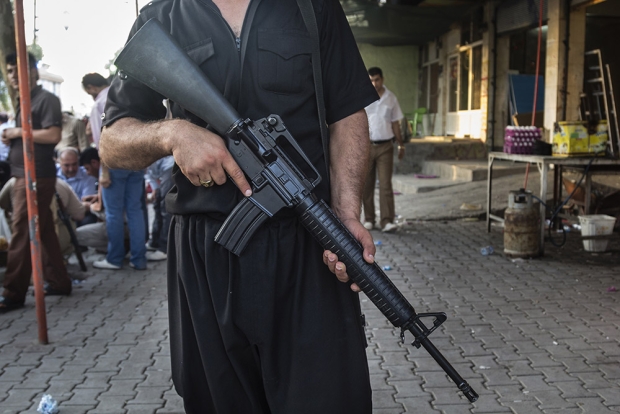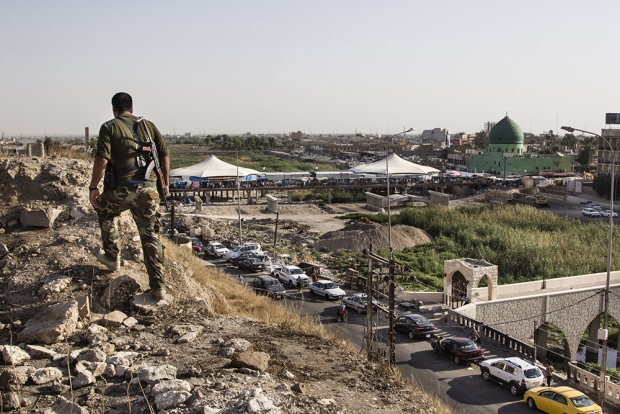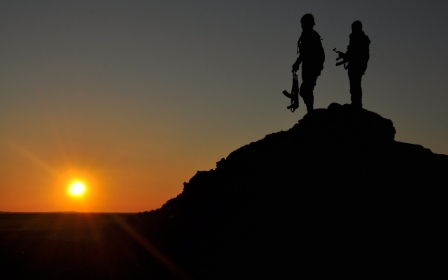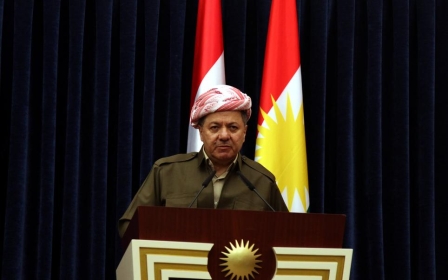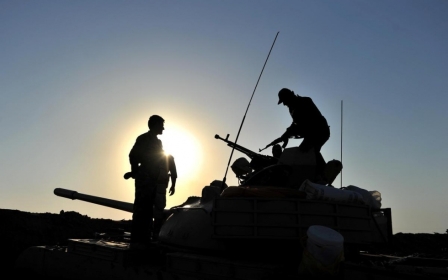The gun market of Kirkuk
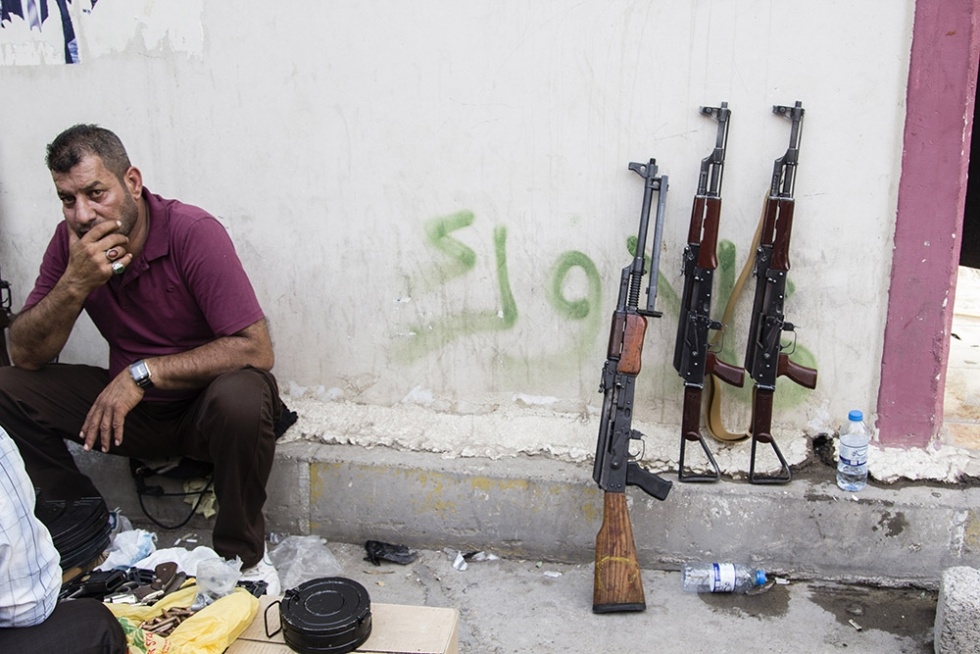
KIRKUK, Iraq - I get stopped in a heartbeat. They've heard English being spoken. In Iraq, westerners used to be the scared ones. Now, it’s us who scare the locals. The Iraqis search me twice - they are afraid I could be a member of the Islamic State (IS). That I could be a foreign fighter.
Despite its simple look - reminiscent of a long gone 50s-style town, with low buildings and dull, dusty colours - Kirkuk has more than a million residents and is patrolled metre by metre. The frontline is 20 miles away. Though to a newcomer, honestly, the whole country seems to be a frontline. "Never believe you are in Iraq," I was warned on my arrival by the visa officer who stamped my passport. "Never believe you know who you are talking to. Iraq doesn't exist."
After the Iraqi army abandoned Kirkuk in the face of some 2,000 IS militants last June, the city has been defended by the well-equipped and well-trained pershmerga and by various Shiite militias. In the end, it's all a patchwork of minorities, ethnicities and religions here - a collection of power groups. Nobody trusts anybody. And it's been years now since analysts have begun discussing potential solutions. They talk about Sunnis and Shiites, Arabs and Kurds, constitutions, consultations and confederations. In its latest report, Amnesty International has been more concise. There's no point in negotiating or drafting one peace plan after the other, Amnesty says. The problem in the Middle East is that everybody has a gun.
In Kirkuk, AK-47s are on sale at the downtown market. Next to the apples.
The market entrance is shielded by concrete barriers spaced out by grilled fish and fighters in combat gear. Last June a blast, supposedly an IS attack, swept away 15 people. Things are calmer now. Merchants hang around drinking tea or coffee with fellow shopkeepers, butchers and grocers. Now and then somebody comes and asks for a grenade launcher.
An agent who introduces himself as Shwan, 32, denies everything. Nobody here sells guns to civilians, he says. Only to peshmerga. To buy guns, you need a permit. It's all under control, he says. This is not Iraq, this is Kurdistan. Here there's law. The policeman next to him nods. Here there's law, he repeats. Although our photographer recognises him immediately: a few weeks ago his portrait was taken - exactly here. To make a living wage, he sells guns.
It’s not just Kirkuk that has a local souq al-asliha, or gun market. They can be found in other cities as well. But in Kirkuk, weapons are sold only to Kurds.
But the city’s population is rather mixed. Despite the fact that it contains 30 percent Sunni Arabs and 15 percent Shiite Turkmens, thousands of Kurds claim the right of return and property restitution in Kirkuk after being expelled by Saddam Hussein’s regime in the 1990s and early 2000s. For the Kurds, Kirkuk is Kurdish regardless of figures. When the Iraqi troops disbanded in June, pushed out by the IS advance, the peshmerga fighters promptly extended their control to the entire city - and its oil. Underneath Kirkuk lies one of the largest oil fields in Iraq.
The second bazari chak (as they reply in Kurdish when you ask in Arabic for the souq al-asliha) in Kirkuk was also hit by a bomb. Here, too, it's all more discreet than before. Sellers are not grouped together anymore. Each of them has a small workshop to fix guns, and nothing more. At first glance, on the shelves there are just some accessories - night optics, sniper scopes, body armour, ammunition.
"We all fear Sunni (Arabs)," one of the workshop owners admits. "All Sunnis of Kirkuk have a brother, a cousin in Mosul. A cousin in the IS ranks. And if he gets killed by the peshmerga, his family might take revenge on you. As soon as there are rumours of clashes nearby, in a few minutes everybody has a gun in the street. In a few minutes, it's a hunt for Arabs."
"Until 10 months ago, the only customers were the peshmerga," Farman, 30, says.
"Now everybody wants a kalashnikov. Because there's no point in denying it: IS, if it gets in, will kill us all."
"For me all Sunnis are IS,” he adds. “I can live with them, I respect everybody; they are unable to live with us. If they are not IS members, in any case they allow IS to hide in their neighbourhoods."
“I wouldn't sell a gun to an Arab for a thousand dollars."
But the fact that a number of Kurds have joined the extremist group complicates matters.
"About 500 Kurds have joined IS," a government employee says. "Nobody is safe. You can check who buys a gun. But you cannot know against whom it will be used."
But Farman is not afraid he will accidentally sell a gun to the wrong person. "We all know very well how to recognise an enemy," he says. His customers nod. They, too, seem to have no doubt.
Do you have a gun at home? I ask a man next to me. They all laugh.
"Only one gun? I have an arsenal. I am ready."
New MEE newsletter: Jerusalem Dispatch
Sign up to get the latest insights and analysis on Israel-Palestine, alongside Turkey Unpacked and other MEE newsletters
Middle East Eye delivers independent and unrivalled coverage and analysis of the Middle East, North Africa and beyond. To learn more about republishing this content and the associated fees, please fill out this form. More about MEE can be found here.


